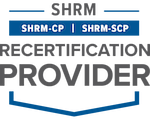Description
RECORDED TRAINING COURSE


Employee vs. Independent Contractor is a significant aspect of employment law. Before former President (and now President-elect) Donald Trump left office in 2020, his administration passed a rule, somewhat narrowing the definition of who and what is an independent contractor – and then the Biden Administration withdrew that rule, rolling things back to the confusing place they were under the Obama Administration.
But then, due to a legal challenge the Trump Rule was reinstated – and then under the “Biden Administration”, the US Department of Labor implemented a “new” rule that took effect on March 11. That rule itself is the subject of legal challenges. If that’s not enough, with President Trump returning to the White House in January, his administration may roll back that rule. Are you dizzy yet? In this webinar, we will sort that out and how, in the interim, you can determine if your worker(s) is/are independent contractors or employees.
Many employers believe that if their employees agree to certain pay arrangements, or agree to be classified as independent contractors, then there is no violation of the law. This is not the case. Employees cannot agree to waive their rights under the Fair Labor Standards Act. For example, offering your employees time off or additional benefits in place of overtime pay is still an FLSA violation—even if your employees sign a written contract to that effect. The FLSA and only the FLSA determine the employer’s FLSA obligations.
Even when an employee willingly goes along with, or even requests, an illegal pay arrangement s/he can still sue the employer for Fair Labor Standard Act violations and recover any back pay he is owed under this employment law. In addition to keeping the extra pay and benefits he already pocketed under the illegal compensation system, and additional amounts in liquidated damages. If that’s not enough you may also be on the hook for your employees’ legal fees.
Session Highlights:
- Learn how the Independent Contractor Rule will impact Employers and Independent Contractors
- Learn why it is confusing to determine and define the requirements for IC status.
- Learn about examples of employee vs Independent Contractors case studies.
- Learn how different this new rule is from the previous rule.
- Learn what the “proposed rules” include, and which proposal can make challenges for Employers and agents of employers like professionals involved in employee relations.
- Learn what the penalties are for violating classification regulations by the DOL, NLRB and IRS.
- Red flags you will want to avoid.
- Learn what the best practices are when classifying employee vs independent contractors.
- Learn how Employers can effectively mitigate the proposed regulations
Why You Should Attend:
Whether a worker is an independent contractor, or an employee is one of the most misunderstood areas in employment law, leaving businesses very vulnerable to fines, penalties, and legal fees that can be staggering— particularly to smaller businesses. Businesses that try to escape payroll and other taxes in connection with their workers or provide workers’ compensation coverage and other benefits do so at their peril. Since this practice results in the loss of significant sums of money to both the federal and state governments, the US Department of Labor has entered into agreements with many of its state counterparts to crack down on businesses that misclassify workers. And, because of that how businesses “paying contractors” matters a lot.
This webinar will provide valuable and practical insight on how to properly classify freelancers, consultants, temps, and other contract workers—and how to tell whether the worker in question is an employee. In this webinar, you will learn how and when your workers are legally your employees, or how to classify them as independent contractors properly. This topic is particularly timely considering the Biden Administration’s withdrawal of the rule promulgated by the Trump Administration.
Who Should Attend:
- Business Owners
- CEOs
- CFOs
- Controllers
- H.R. Managers and Directors
- Managers, Senior Managers
- Hiring Managers
- Anyone who deals with compensation issues
- Compensation Officers
- Benefits Administrators
- HR Generalists
Note: You will get access to the Recording link and E-Transcript; in your account and at your registered email address.





